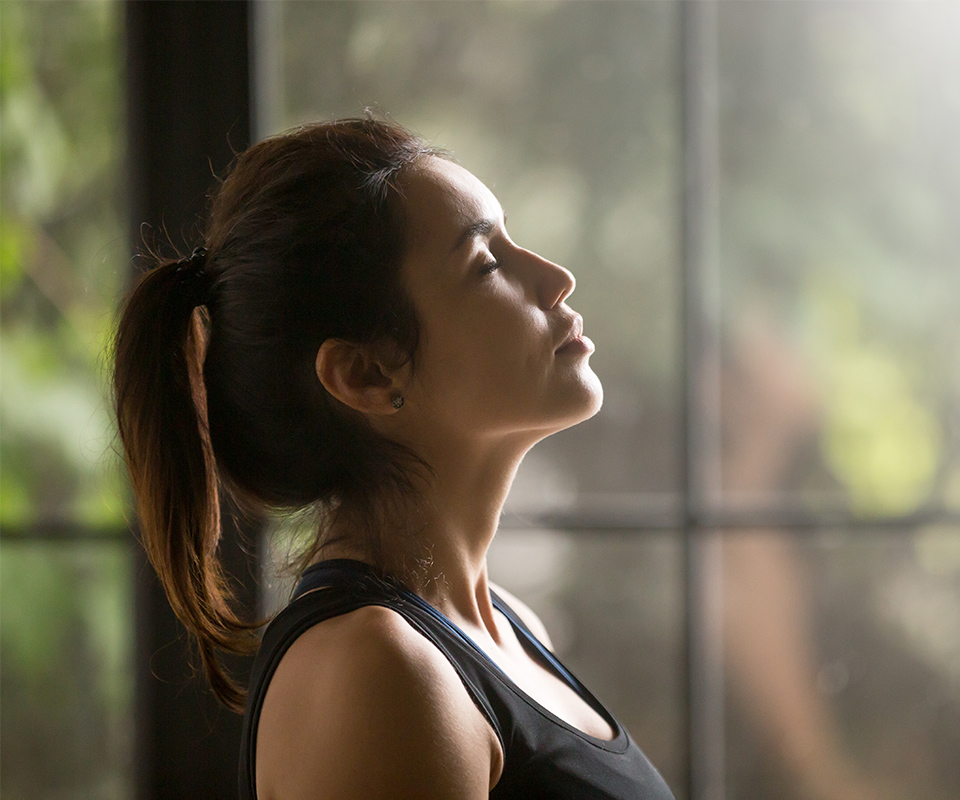
Ask a question or
book an appointment
Get in touch with the Elite Dental of Staten Island team and see how we can help transform your smile!
What CST aims to achieve
Elite Dental’s craniosacral therapy techniques provide a holistic awareness of the well-being of the dental patient. It is a relatively new form of treatment that aims to fight various conditions when mixed with complementary medicines.
In addition to enhanced dental care, CST offers the dental professional the potential to solve many instances of craniocervical pain and dysfunction, whilst also assisting with chronic pain.
The Effects of CST
The aim of CST is to bring the skeletal structure back into balance through the use of a light touch, creating general pressure. The massage therapists who perform craniosacral therapy work to influence the bones of the skull. This affects, in turn, the deeper layers of membranes and cerebrospinal fluids in the spinal canal, the brain, and the spinal cord itself.
A general principle of this work is that as the structure is normalized, function will follow. It aims to relieve compression in the bones of the head, the sacrum (a triangular bone in the lower back), and in the spinal cord.
What can CST treat?
When mixed with other complementary therapies, craniosacral therapy can help treat a variety of conditions which include back pain, central nervous system disorders, chronic fatigue, concussions, fibromyalgia, migraines, neck pain, scoliosis, spinal cord injuries, stress and anxiety.
Relieving pain through Craniosacral Therapy
There are many ways people can see the benefits of craniosacral therapy if it is done correctly. It is thought to relieve compression in the head, neck, and back. This can soothe pain whilst also releasing both emotional and physical stress and tension. It’s also thought to help restore cranial mobility and ease or release restrictions of the head, neck, and nervous system.
Craniosacral Therapy Benefits
Craniosacral Therapy is a holistic and natural healing approach to various conditions, which has very limited side effects. It can reduce stress levels and anxiety, whilst also easing the chronic pain which comes with various conditions, as explained above.
FAQs
Almost anyone can benefit from CST and there are very few side effects from the treatment. Unfortunately, however, craniosacral therapy may not be suitable for people with certain conditions. Elite Dental’s team of craniosacral therapists can help you determine if you are or are not suited to the treatment. These include people with recent concussions, cerebral swelling, brain aneurysm, structural defects in the cerebellum such as Arnold-Chiari malformation, a traumatic brain injury, blood clots and any disorder which causes instability of cerebral fluid pressure, flow or build up.
Generally, the treatment will take 45-60 minutes. This may, however, change based on your needs.
Craniosacral therapy (CST) is a form of alternative therapy that involves the application of light touch to the skull, face, spine, and pelvis. Proponents of CST claim that it can be used to treat a wide range of conditions and promote overall health and well-being. While scientific research on the effectiveness of CST is limited, some studies have suggested that it may have the following health benefits:
- Pain relief: CST has been shown to be effective in reducing pain, particularly in the neck and lower back.
- Improved sleep: Some people have reported improvements in the quality of their sleep after receiving CST.
- Reduced stress and anxiety: CST may help reduce stress and anxiety by promoting relaxation and a sense of calm.
- Enhanced immune function: Preliminary studies suggest that CST may help improve immune function by reducing stress and promoting relaxation.
- Improved digestion: Some people have reported improvements in digestive function after receiving CST.
- Relief from headaches and migraines: CST may be effective in reducing the frequency and intensity of headaches and migraines.
After a craniosacral therapy (CST) session, people often report feeling relaxed and calm. Some people also report feeling more energized or having a greater sense of well-being. Others may experience some mild side effects, such as headaches, fatigue, or soreness in the areas where the therapist applied pressure.
It’s common for people to feel more aware of their body and its sensations after a CST session. This increased awareness can help people to identify areas of tension or discomfort that they may not have noticed before. Some people also report feeling more in touch with their emotions or having a greater sense of clarity and focus.
It’s important to stay hydrated after a CST session and to avoid any strenuous activities for the rest of the day. This can help to minimize any side effects and allow your body to fully benefit from the therapy. It’s also important to communicate with your therapist about any reactions or sensations you experience during or after the session.
The number of craniosacral therapy (CST) sessions needed varies depending on the individual and the reason for seeking therapy. Some people may experience relief from their symptoms after just one session, while others may require multiple sessions to see significant improvement.
For acute or recent conditions, such as a recent injury or a short-term illness, a few sessions may be enough to provide relief. For chronic or long-standing conditions, such as chronic pain or a long-term illness, more sessions may be needed to achieve significant improvement.
Your therapist can work with you to develop a treatment plan that considers your specific needs and goals. They may recommend a series of weekly or biweekly sessions, followed by maintenance sessions as needed.
It’s important to note that CST should not be used as a replacement for conventional medical treatment. If you have a medical condition, it’s important to continue to follow your doctor’s advice and to talk to your healthcare provider before trying any new therapy.
Craniosacral Therapy (CST) is an alternative therapy that offers relaxation and potential relief for some individuals. Many people have reported feeling more relaxed and experiencing temporary relief from stress or discomfort after CST sessions. While scientific evidence is limited, some individuals find value in the calming and gentle approach of CST. As with any therapy, seeking a qualified and reputable practitioner can enhance the experience and provide a positive environment for relaxation and self-care. If you’re considering CST, discussing your intentions and expectations with a healthcare provider can help you make an informed decision based on your personal needs and preferences.
Craniosacral Therapy involves gentle touch and manipulation of the craniosacral system. While lying completely clothed, clients allow the practitioner to pick up on subtle bodily rhythms. People often feel relaxation, warmth, and a sense of connection with their body during the session, though experiences vary. The therapy aims to promote relaxation and support the body’s natural healing mechanisms.
A typical Craniosacral Therapy (CST) session usually lasts about 60 to 90 minutes. The duration can vary based on the practitioner’s approach, the client’s needs, and the goals of the session. During this time, the practitioner uses gentle touch and manipulation to work with the craniosacral system, aiming to promote relaxation and support the body’s self-healing mechanisms. It’s recommended to discuss the session duration with your chosen CST practitioner to ensure you have a clear understanding of what to expect during the session.
You can find a craniosacral therapist at Elite Dental, so please call us on (718) 370 1200. Alternatively, you can also swing by our dental office located in Staten Island, NY.
